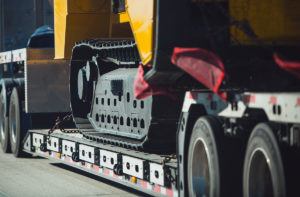Frame Integrity in Commercial Vehicle Safety

Did you know that frame integrity is one of the key factors in commercial vehicle safety?
When it comes to commercial vehicle safety, one crucial factor that often goes overlooked is the structural integrity of the vehicle’s frame. The frame is the backbone of any commercial vehicle, supporting everything from the engine and transmission to the cab and cargo. Ensuring frame integrity is essential for both performance and, most importantly, safety. Let’s explore why frame integrity plays such a critical role in protecting drivers, passengers, and the public.
What is Frame Integrity?
Frame integrity refers to the strength, stability, and overall condition of a vehicle’s structural frame. For commercial vehicles such as trucks, buses, and vans, the frame must withstand heavy loads, vibrations, and potential collisions without compromising its strength. Frame integrity is influenced by materials, design, and maintenance practices.
Why is Frame Integrity Important?
Understanding the importance of frame integrity is essential for fleet managers and commercial drivers that manage their own vehicles.
Structural Support and Stability
A well-maintained frame ensures the vehicle maintains its intended structure. Without proper frame integrity, the vehicle may become unstable, resulting in swaying, reduced control, or increased susceptibility to rollovers. This is especially dangerous in commercial vehicles, which are often large and heavy.
Crash Protection
In the event of an accident, the frame plays a pivotal role in absorbing impact energy and minimizing damage to critical components. A compromised frame may fail to protect the driver and passengers effectively, increasing the risk of injury or fatality.
Load Distribution
Commercial vehicles often carry heavy and uneven loads. A strong frame helps distribute this weight evenly, preventing excessive stress on any single point. Uneven distribution can lead to mechanical failures, tire blowouts, or even complete frame collapse.
Alignment and Handling
A damaged or weakened frame can throw off wheel alignment, impacting steering and braking performance. This can reduce the driver’s ability to maintain control during emergencies or challenging road conditions.
Long-Term Durability
Ensuring frame integrity through regular maintenance helps extend the vehicle’s lifespan. Corrosion, rust, and fatigue can gradually weaken a frame, making early detection and repair crucial for long-term performance.
How to Maintain Frame Integrity
- Routine Inspections: Regularly inspect the frame for cracks, rust, or other signs of wear and tear. Pay special attention to joints, welds, and areas frequently exposed to moisture.
- Rust Prevention: Applying rust-resistant coatings or paints can help protect the frame from corrosion, especially in regions where roads are treated with salt during winter months.
- Weight Management: Avoid exceeding the vehicle’s maximum load capacity. Overloading places extreme stress on the frame, accelerating wear and tear.
- Professional Repairs: If any damage is detected, seek professional repair services to reinforce or replace weakened sections of the frame. Cutting corners on frame repair can lead to dangerous outcomes.
- Proper Driving Practices: Encourage safe driving habits to reduce excessive strain on the vehicle. Harsh braking, aggressive turns, and poor road conditions can accelerate frame deterioration.
MIDDLETON & MEADS IS YOUR ONE-STOP SHOP FOR ALL YOUR VEHICLE’S NEEDS.
Need to repair your truck or bus? Contact Middleton & Meads today! Middleton & Meads provides quality truck and bus repair, service, and fleet management for the Baltimore, MD, area. We have over 90 years of experience in the trucking industry and will provide you with customer service like you have never experienced before! If you are interested in seeing how we can help your business, give us a call at (410) 752-5588 or visit us online today! You can see the vast catalog of services we offer by checking out our Line Card or heading over to Solutions for more information. For more articles and trucking tips, follow us on Facebook and Twitter.

